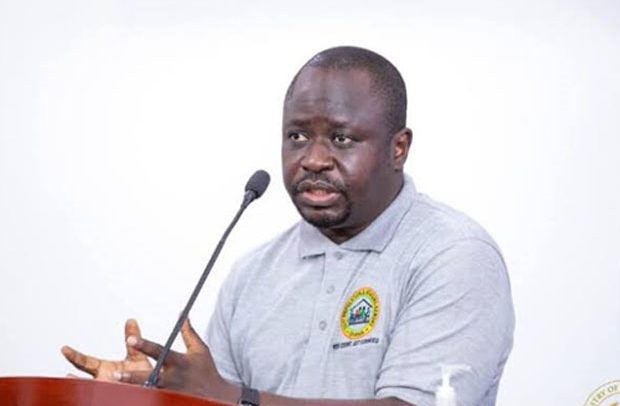Ashanti Regional Health Directorate Rallies Stakeholders for HPV Vaccine Rollout to Combat Cervical Cancer.

Cervical cancer remains a pressing public health concern globally, ranking as the fourth most common cancer among women, with an estimated 604,000 new cases and 341,800 deaths recorded each year.
Alarmingly, about 84% of these cases and 86% of the deaths occur in low- and middle-income countries, including Ghana, where access to early screening and treatment remains a challenge.

In Ghana, cervical cancer is the second most common cancer and the second leading cause of cancer-related deaths among women.
According to statistics, nearly 2,800 new cases and 1,700 deaths were recorded in 2020 alone. Health experts have also revealed that around 70% of women diagnosed with cervical cancer in Ghana are already in the advanced stages of the disease, resulting in poor survival rates, ranging from 95% in stage I to just 15% in stage IV.

To address this alarming situation, the Ashanti Regional Health Directorate of the Ghana Health Service (GHS), with support from UNICEF, WHO, and other development partners, has embarked on an engagement session with key stakeholders to discuss the introduction of the Human Papillomavirus (HPV) vaccine in Ghana.
The engagement brought together representatives from the Ghana Education Service (GES), traditional leaders, the clergy, the National Commission for Civic Education (NCCE), and other community influencers.

The objective was to educate them on the HPV virus, its link to cervical cancer, and the national vaccination rollout strategy to ensure the vaccine is effectively administered to all eligible girls across the region.

Speaking at the engagement, Dr. Fred Adomako Boateng, the Ashanti Regional Health Director, emphasised the significance of incorporating the HPV vaccine into Ghana’s routine immunisation schedule. He explained that this would ensure equitable and sustainable access to the vaccine for all girls aged 9 to 14 years.
He stated, “Integrating the HPV vaccine into our routine immunisation schedule is essential to ensure that every girl, irrespective of where she lives, has access to this life-saving intervention. Ghana is now part of a global movement, joining over 140 countries, including 28 within the WHO African Region, that have introduced the HPV vaccine.”

Dr. Adomako Boateng further disclosed that the Ashanti Region has set a target to vaccinate about 400,000 girls aged between 9 and 14 years.
He called on all stakeholders to play their part in dispelling myths and misconceptions surrounding vaccination exercises. “It is important that stakeholders continue to educate their communities and dispel the myths surrounding vaccines so that parents will allow their daughters to receive the HPV vaccination,” he added.

Ms. Charity Nikoi, UNICEF’s Social and Behaviour Change Specialist, recounted the earlier pilot phase of the HPV vaccine in Ghana. She noted that UNICEF’s support between 2013 and 2015 was crucial in building public trust and addressing misconceptions.
“UNICEF supported the pilot phase between 2013 and 2015, and it was a success because all the myths and misconceptions were addressed. We have since built confidence in the vaccine, which is why we fully support its national rollout,” she said.

Also speaking at the event, Nana Boakye Yam Ababio, the Chief of Nkwantakese, who served as the chairman and guest speaker, reaffirmed the commitment of traditional authorities to the vaccination campaign.
He emphasised the moral and cultural responsibility of parents and community leaders to protect young girls from preventable diseases like cervical cancer.
“We, the traditional leaders, are fully in support of this campaign. I urge all parents and caregivers to ensure that every eligible girl in their communities receives the vaccination. It is not only a medical responsibility but also a moral and cultural duty to safeguard the future of our daughters,” Nana Boakye Yam Ababio stressed.

The World Health Organization (WHO) has set an ambitious global strategy to eliminate cervical cancer as a public health problem by 2030.
Its key targets include fully vaccinating 90% of girls with the HPV vaccine by age 15, screening 70% of women with a high-performance test by ages 35 and 45, and ensuring 90% of women diagnosed with cervical disease receive appropriate treatment.
As Ghana joins this global push to eliminate cervical cancer, such collaborative efforts between the health and education sectors backed by traditional, religious, and civic leaders will be crucial in protecting thousands of young girls from this preventable but deadly disease.





